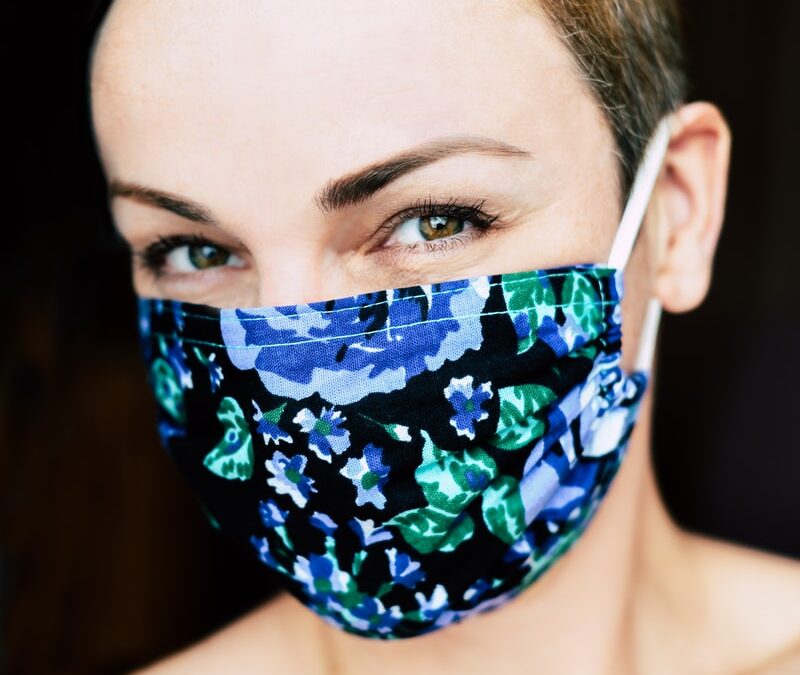Meet maskne, the new form of acne caused by face masks during the COVID-19 pandemic. While you might've thought your acne days were over – guess again! The new normal requires wearing face masks regularly and even for prolonged periods. Face masks are covering your mouth and nose to flatten the curve; however, people are now experiencing maskne, or face mask-related acne and skin conditions. But is maskne real? How can you avoid maskne? Don't worry! You are on your way to beating your face mask breakouts with the help of our dermatologist in Wellington.
What is Maskne?
The term maskne is known as acne mechanica, which is the result of fabric rubbing against your skin causing friction.1 In fact, acne mechanica has been around a lot longer than the COVID-19 pandemic. Sports players are familiar with the condition due to breakouts caused by their helmets, chin guards, and other sports equipment. Your face, chest, back, and entire body have tiny hair follicles that can cause friction and irritation when rubbed against fabric. Acne flares up as a result of the fabric friction and trapped moisture. Maskne becomes even worse with humidity and heat. While you might not have experienced maskne just yet, if you spend prolonged periods outside, you might experience the face mask breakouts.
How to Treat Maskne
Treating your face mask acne begins by addressing your concerns and understanding the cause. Begin by addressing your skin conditions before you jump into acne treatments in South Florida. Incorporate a few of these steps to treat maskne and prevent more pimples from forming.
- Choose the right type of face mask
The first step of treating maskne is to choose the right type of face mask. To reduce face mask irritation, choose a cotton face mask versus a non-woven surgical mask. Make sure you are choosing a face mask that has breathable material, like cotton, to reduce the risk of maskne. Sweat and friction are inevitable, so try to choose a good face mask and make sure it is clean.
- Wash your face mask
Not only is washing your face mask an excellent way to prevent the spread of coronavirus, but it is also beneficial to treat maskne. It's very common to reuse your face mask, but do you realize how much bacteria are building up between each thread? There are too many microorganisms to count living in your face mask, which are flaring up your maskne. Wear your face mask but wash it first.
- Use gentle skin products
Treat your face mask acne by using gentle skin products. Your maskne is causing your skin to flare up and become irritated, so there is no need to add to the irritation with harsh cleansers, exfoliators, tools, and more that will strip your skin. Simply cleanse your skin twice a day, once in the morning and at night with gentle and non-stripping products.2 Choose hydrating and moisturizing products that prevent dryness and are gentle on your skin.
- Skip the makeup
Another great way to treat your face mask irritation is by skipping the makeup. Wearing too many products under your face mask can cause product build-up and lead to maskne flare-ups.2 Try to reduce how often you wear a heavy, full-coverage foundation and other makeup products to allow your skin to breathe.
- Receive an acne treatment
If you are noticing your maskne is not reducing and is actually getting worse, then it might be a good idea to receive an acne treatment. Medical grade facials are an excellent option to clean, exfoliate, extract and moisturize your skin. If your acne is becoming more severe, a chemical peel can help treat and diminish your maskne. Our team is proud of you for wearing your personal protective equipment and doing your part to reduce the spread of coronavirus. Maskne is real but is treatable. Don't let maskne knock down your confidence. For all your cosmetic treatments in Wellington, please contact us today to learn more and book your appointment.
Sources
- Very Well Health – What is Acne Mechanica?
- Shape – 'Maskne' Is a Very Real Thing—Here's How to Beat Face Mask Breakouts


